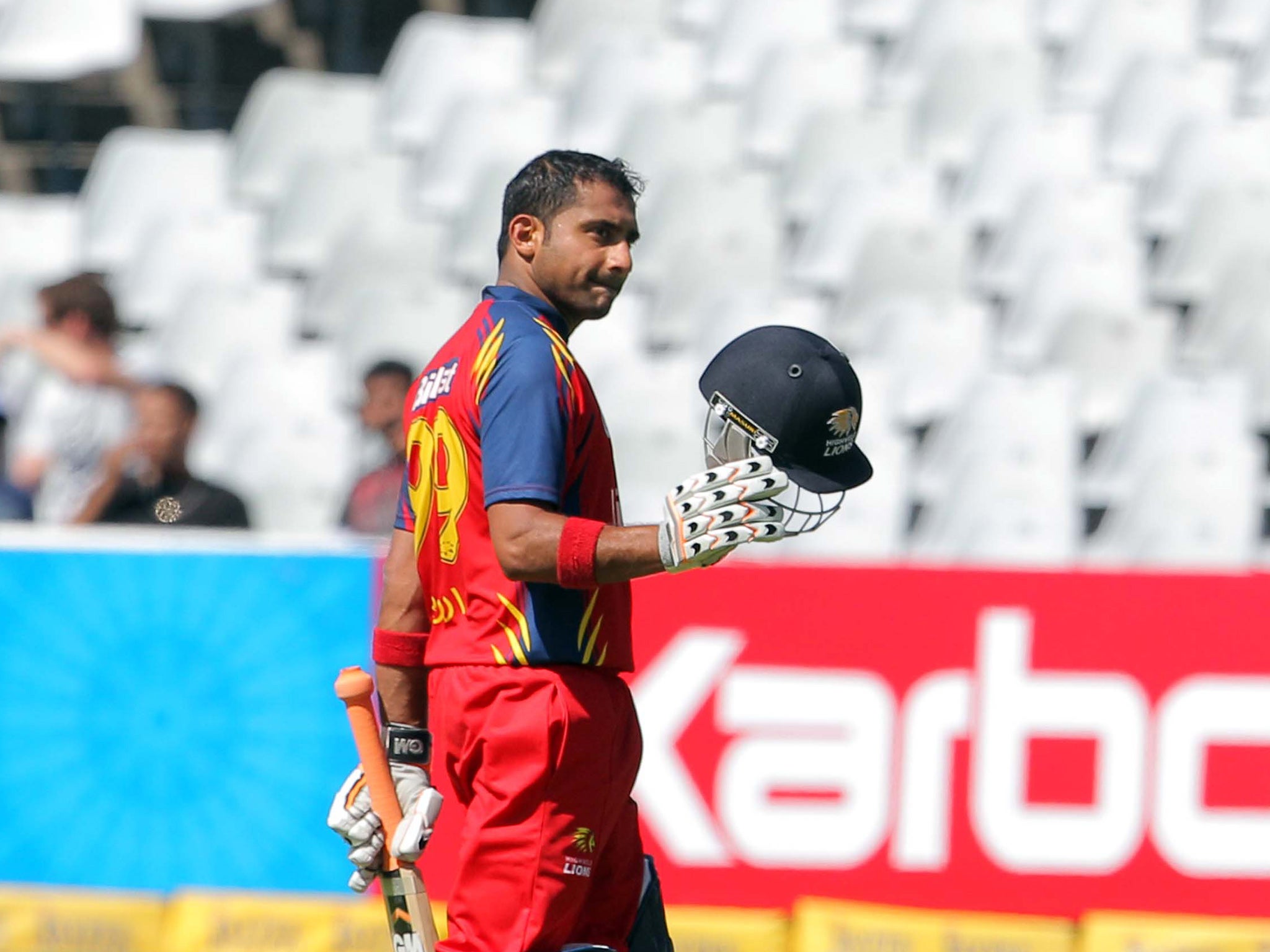Gulam Bodi: cricket match-fixer banned for 20 years
Investigations are continuing into players he approached

Your support helps us to tell the story
From reproductive rights to climate change to Big Tech, The Independent is on the ground when the story is developing. Whether it's investigating the financials of Elon Musk's pro-Trump PAC or producing our latest documentary, 'The A Word', which shines a light on the American women fighting for reproductive rights, we know how important it is to parse out the facts from the messaging.
At such a critical moment in US history, we need reporters on the ground. Your donation allows us to keep sending journalists to speak to both sides of the story.
The Independent is trusted by Americans across the entire political spectrum. And unlike many other quality news outlets, we choose not to lock Americans out of our reporting and analysis with paywalls. We believe quality journalism should be available to everyone, paid for by those who can afford it.
Your support makes all the difference.The former South Africa international cricketer Gulam Bodi has been banned from the game for 20 years. Bodi admitted to trying to fix matches in last year’s Ram Slam Twenty20 tournament and, although officials are convinced they caught him in the planning stage of his operation, investigations are continuing into players he approached.
Haroon Lorgat, the chief executive of Cricket South Africa, conceded yesterday that it was possible the network with which Bodi was associated stretched to Sri Lanka, Hong Kong and Singapore. The continuing presence of the vast illegal betting market in India now looms over all domestic competitions more than the international game.
“We’d be naive to think that it might not be the same syndicates that operate in different countries,” said Lorgat. “It’s quite likely it’s the same people. Once you tighten up at international level, the corrupt activity does not disappear, it goes somewhere else.
“It had to go into the domestic game, hence why each member board, including the ECB [England and Wales Cricket Board)], put in units to tackle or monitor such activity at domestic level. All of us in the cricket community must learn from this experience and remain vigilant.”
Lorgat announced Bodi’s suspension at a press conference in Centurion, the venue where the full extent of match-rigging in the game became clear 16 years ago. Although it was not clear at the time, it emerged months later that Hansie Cronje, South Africa’s captain, had taken a bribe to ensure a Test match against England had a positive result.
The precise scope of Bodi’s activities has still to be determined and Lorgat would not speculate on players whom he might have spoken to between last September and December, when he was charged. But Lorgat insisted that the system for uncovering corrupt practices had worked, with a player or players reporting to CSA that they had been approached.
Lorgat said: “The evidence we’ve got from Mr Bodi suggests that we got him in a planning phase and that no fixes had been active. I expect Mr Bodi to co-operate with us but that’s a condition of his suspended sentence as well.”
Bodi, who played two one-dayers and a Twenty20 for South Africa, has so far helped investigators. He will now also face a criminal investigation. Five years of his ban will be suspended, depending on how much he co-operates.
He is generally assumed to be one of the reasons Kevin Pietersen left South Africa. At the time there was a strict quota system to ensure black and coloured players were given an opportunity and Bodi sometimes kept Pietersen out of the KwaZulu-Natal side.
Lorgat blamed the press for complicating CSA’s investigation in recent weeks and flatly refused to confirm whether names mentioned here in recent weeks were involved in the investigation. “We won’t confirm or deny any name speculated in the media,” Lorgat said. “I think the media at times do not exercise the best responsibility. We won’t stop short until we’ve concluded every last shred of evidence. That could take us weeks, months, if not years.”
Join our commenting forum
Join thought-provoking conversations, follow other Independent readers and see their replies
Comments